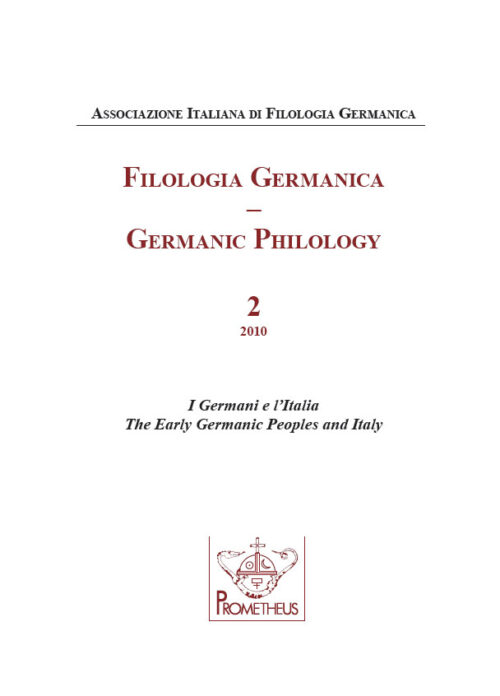Sprache und Schriftlichkeit im langobardischen Italien — Das Zeugnis von Namen, Wörtern und Entlehnungen. Ein Kommentar zu Nicholas Everett, Literacy in Lombard Italy
DOI:
https://doi.org/10.14672/fg.v2i.2419Parole chiave:
Alamanni, Rothari, Paulus DiaconusAbstract
In his book Literacy in Lombard Italy, c. 568-774, which was published in 2003, the historian Nicholas Everett pretends the Langobards either to have had no language of their own or to have possessed a language (which certainly extinguished soon after the invasion of Italy, c. 568) nearly identical with Old High German. By the analysis of Langobardic loanwords in Italian, of Germanic terminology in the Leges (primarily in the Edictus Rothari a. 643), of vernacular citations in Paulus Diaconus and other sources, and by the examination of the remnants of Langobardic toponymy and Germanic anthroponymy (amply handed down in inscriptions, texts and charters till 774), this study provides evidence of the existence of an independent Langobardic language. It is closely connected with the languages of the Alamanni and Baiuwarii and delivers proof of the existence of a bilingual period in the seventh/eighth century and of the increasing and final Romanization of the Langobards in the eighth century.
Pubblicato
Fascicolo
Sezione
Licenza

Questo lavoro è fornito con la licenza Creative Commons Attribuzione - Condividi allo stesso modo 4.0.
CC-BY-SA



